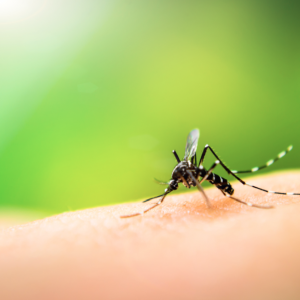
The Dangers of Goat’s Milk, A Case Study
There are certain complaints in the ER that make a pediatrician a little bit more nervous than others. Ear pain or a sprained ankle, although equally important, are less concerning than symptoms such as chest pain, difficulty breathing or even fatigue. Fatigue, especially in a 13 month old child, is one of those chief complaints that makes a physician a bit more nervous. Of course it could be something relatively benign such as a viral illness, but it can also be something very serious.
Here is the story of the 13 month old baby who came to the ER with the chief complaint of fatigue. The baby was alarmingly pale and laying listless in her mother’s arms. An extensive history was taken in an attempt to discover what was making this baby so weak. At first glance, her alarmingly pale skin lead her pediatrician to believe that she was severely anemic (lack of healthy red blood cells or hemoglobin sometimes caused by an iron deficiency) and so lab tests needed to be performed immediately.
As parents, we cringe at the words “labs” or “vaccinations”, as we know the stress and drama that occurs with anything requiring a needle. This beautiful baby barely moved when blood was drawn or when an IV was placed in her arm. Unfortunately, our suspicions of severe anemia were confirmed as the lab results were barely compatible with life. She was immediately transferred to the intensive care unit, where she received multiple blood transfusions and iron supplementation. Thankfully, she responded extremely well to the treatment and is finally back home with her brothers and sisters where she belongs!
The important thing about this baby’s case is the cause of her anemia. An extensive history taken at the ER revealed that the baby’s diet led to her severe anemia. At around three months of age, the mother, who was exclusively breastfeeding, wasn’t making enough milk and decided to switch the baby to goat’s milk. Her other children, who breastfed until 1 year old were switched to goat’s milk and did great. The mother had read online that goat’s milk lacked folate acid. So in order to supplement the diet, she began strictly feeding her baby organic raw vegetables, fruits, and the goat’s milk. However, the child was not receiving enough iron which caused the anemia. To make matters worse, this mother also made the decision to not vaccinate her child, so she had not taken the baby to the pediatrician for monthly checkups. This is how the anemia was overlooked.
Why am I sharing this case with you? Do I think you should never give your child goat’s milk? Do I think this mom is a horrible parent? No and absolutely NOT! I actually think she was trying to do what she felt was best for her child but made some mistakes that we can all learn from. There are some important lessons that I want you guys to take away from this story and it is not the nutritional content of goat’s milk vs. formula.
- Google can be dangerous. When I was doing research for this article I searched goat’s milk for babies, and the entire first page of Google was filled with advertisements and articles about the nutritional benefit of goat’s milk. It was not until you get to the third page that you found out about the dangers of exclusively feeding your infant (under the age of 12 months) goat’s milk. After Forever Freckled was launched, I quickly learned the term SEO (search engine optimization), which allows your page to pop up on the first page of a Google search. It is solely dependent on how popular your page is and the language you use in the text. Your search does not provide results based on validity or scholar. Please remember this when researching certain things about your child or pet’s health. If you have specific questions, always as your doctor. Do not rely on Google or a web search to answer important medical questions.
- Diet restrictions in a growing baby can be dangerous. Training in Miami, I was exposed to a multitude of different cultures and beliefs. A large part of culture is food. I loved learning about the different diets and traditions that different groups of people practiced. We, as parents, have the right to feed our children what we feel is the best for them but we need to understand that what we give them, or fail to give them, affects their growth and development. The first year of life is extremely important for growth, and babies need certain minerals and vitamins to ensure health and happiness. Even babies that are exclusively breastfeed, need vitamin supplementation. It is imperative that you discuss any type of nutritional decision with your pediatrician and nutritionist to ensure that your child is receiving the appropriate nutrients to grow and stay healthy.
- Your pediatrician is on your side. Over the past decade there was been a change in the culture of medicine and people don’t seem to trust doctor’s advice as much as they used to. Whether it’s poor bedside manner, short visit times, or the inability to get in touch with a primary care physician, parents are looking to other avenues to help guide them in making decisions for their children. Although I understand the frustration, please remember that doctors spend years training to give you the best guidance when it comes to your child’s health. The case that I discussed above would have never happened if the parent had taken her baby to her pediatrician for routine check ups. The pediatrician would have explained to her the difference between introducing goat’s milk to your child after the age of 1, compared to at 3 months. A simple blood test could have detected the problem before it got so severe. There are many pediatricians that are open minded and willing to work with the different cultures, beliefs, and requests of parents. If you aren’t on the same page as your pediatrician, find a different one that makes you feel more comfortable. Your doctor is someone you should be able to reach out to and who can help guide you throughout your child’s young life.
I hope this helps you with your journey…see you next Wednesday!




